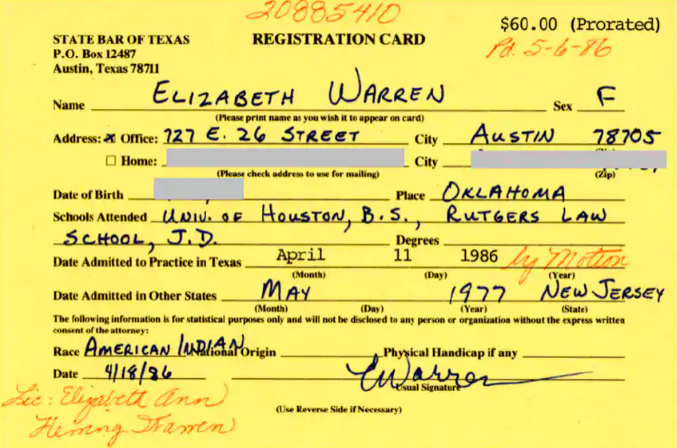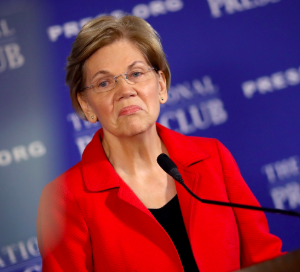After months of effort by Sen. Elizabeth Warren to bolster her Native American bona fides, a bill allowing the Massachusetts-based Mashpee Wampanoag Tribal Nation to circumvent current law and open their own casino is finally getting a vote. But activists are now asking:
Where’s Warren?
Last March, Senator Warren was a co-sponsor of the Senate version of the Mashpee Wampanoag Tribe Reservation Reaffirmation Act, which would overturn rulings by both the Department of the Interior and the federal courts to give the tribe land for a casino. This year, not only is Sen. Warren not sponsoring any legislation but her office is a firm “no comment” on the legislation entirely.
The bill is scheduled to be heard by the Indigenous People’s subcommittee of the House Natural Resources Committee on Wednesday, April, 3. But Warren has yet to endorse or support it publicly since the new Congress began. “She’s been waved off,” an industry source tells InsideSources. “Everyone knows it’s her bill, but they [the Mashpees] don’t want her anywhere near it.”
Warren’s silence is part of an overall strategy by the new Democratic leadership of the House to slip the legislation through Congress with as little transparency as possible. Reported plans to bypass the committee process and bring it to the House floor for a vote were upended when opponents of the effort began bringing attention to it.
Will House Republicans raise questions about this casino plan–including the involvement of the scandal-plagued gaming company Genting Malaysia — or will they help Warren repair her troubled relationship with Native Americans by supporting the legislation?
“She may be silent now,” the industry source told NHJournal, “but Warren’s 2020 campaign team will be celebrating if they can get this win.”
Rhode Island lawmakers, including her fellow Democrats, will not. “This bill is bad for Rhode Island. I have strongly communicated to my colleagues my State’s concerns and opposition to this bill,” Rep. David Cicilline (D-RI) tells InsideSources.
Warren’s work on behalf of the controversial Mashpee casino project is widely seen as part of her efforts to mend fences with the Native Amerian community in the wake of her unsubstantiated claims of Native status in multiple official documents. So far the results have been mixed.

In the months since she co-sponsored the Mashpee bill, Warren has suffered the poorly-received release of her DNA test showing minimal genetic evidence of Native American heritage; and the unearthing of a copy of Warren’s 1986 Texas Bar registration card with “American Indian” listed as her race in her own handwriting.
“If she wants to be considered the leader of our party or the leader of the progressive movement, she needs a reconciliation,” Jennifer Epps-Addison of the Center for Popular Democracy said in the wake of Warren’s dubious DNA test. “And that reconciliation should center on Native voices…not one white woman’s tale of understanding her DNA.”
When the Texas Bar registration card was published, Aimee Allison of the progressive group She the People said, “To claim native identity — clearly it wasn’t the appropriate thing to do. Was she trying to indicate her solidarity with the group? Why was it like that for her in the 1980s? I think she has more to say on that.”
She the People’s mission is to help elect women of color.

